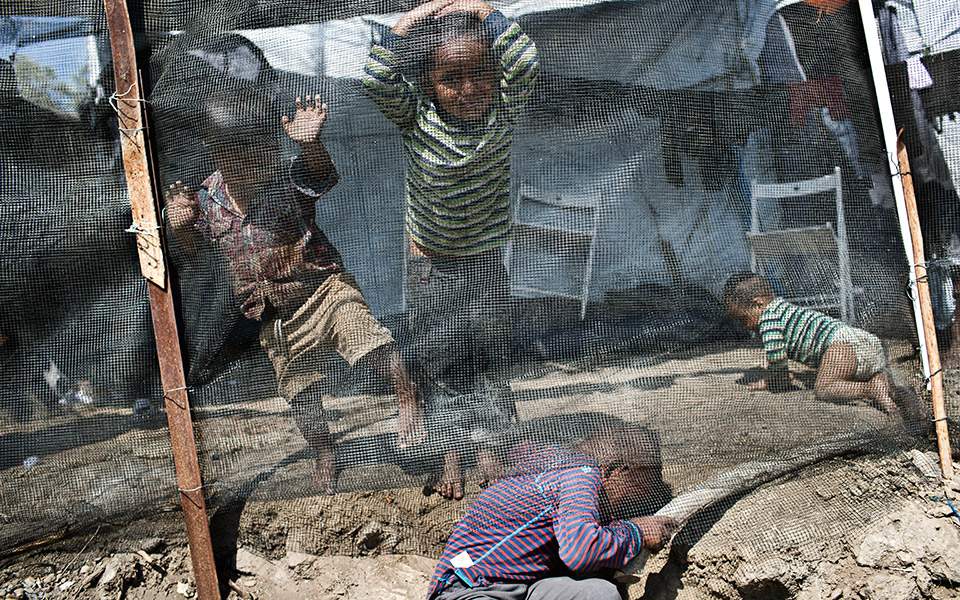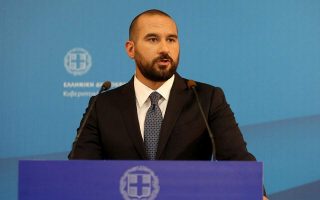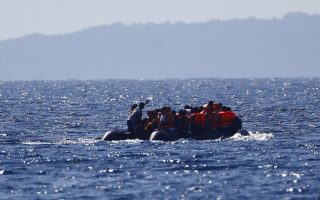Lesvos asylum staff ring alarm bell

Employees of the asylum service on Lesvos have rung the alarm bell over conditions on the eastern Aegean island as official figures show that more than 11,000 migrants are currently residing at local facilities, more than twice the maximum capacity.
The arrival on the island of 615 migrants in the past three days pushed the total number of asylum seekers on Lesvos to 11,053.
Of those people, 8,912 are staying at the already overcrowded center near the village of Moria, which was designed to hold a maximum of 3,100 people. Another 1,185 live at Kara Tepe and the rest at smaller camps.
“If the migration flows continue at the current rate, we won’t be able to keep going and keep control of the situation,” Marios Kaleas, the head of the local asylum office, told Kathimerini.
The office has been particularly busy over the past week, processing 750 new asylum applications, following a large increase in arrivals from neighboring Turkey. “They all lodge asylum applications, otherwise they are immediately returned to Turkey,” he added, noting that the majority attempt to be categorized in groups deemed as “vulnerable” as this guarantees their transfer to the Greek mainland, where reception facilities are less crowded.
Transfers to the mainland have picked up in recent months though conditions remain substandard at Moria and other island camps which are already overcrowded as arrivals continue.
A total of 2,645 migrants were transferred from the islands to the mainland from August 6 to September 9.
In a statement, Doctors Without Borders, whose representatives are stationed close to the Moria center, called for the immediate transfer of all minors and members of vulnerable groups from the island facility to the mainland.
“Every week, Doctors Without Borders teams see incidents involving adolescents who try to commit suicide or self-harm,” the statement said, adding that they also have to deal with “serious cases of violence.”
A delegation from the Citizens’ Protection Ministry is to visit Moria on Tuesday to assess the situation.
The head of the Moria center, Yiannis Balbakakis, told Kathimerini that overcrowding has created a “very difficult situation” which has been aggravated due to the presence of people from many ethnic groups. But he suggested that some reports were far-fetched. “A lot of what is being said does not stand.”
Referring to the 19 NGOs who signed a petition last week, calling the conditions at Moria “shameful,” Balbakakis said only four have seen the camp first-hand.





